This week's best things
The importance of taste, AI’s impact on culture, and why boring beats hype. Plus product thinking, buy vs build, learning organisations, Gen Z heritage, bias, action traps, and the end of social media.

This week I hosted a session (as part of The Space's Navigating Digital Change programme) on the value of product thinking where we heard from Neil Williams and Eva Liparova. Neil, Eva and I are exploring if there's any appetite for us to deliver this as a webinar for a wider audience - let me know.
There's a fair bit of AI stuff in this edition but it's all useful or insightful (I think!).
Also if you're in London in late October then go and see my brother in a new adaptaion of Hedda Gabler by Tanika Gupta called Hedda, at the Orange Tree Theatre.
Ok, here are some good things.
Digital Design Weekend 2025
An interesting-looking weekend of events (this weekend, 19th-21st September) at the V&A in South Kensington, London.
"Join artists and designers for a weekend of free workshops, immersive experiences and demonstrations exploring the intersection of art, design and technology"

Good Taste Is More Important Than Ever
Following on from the piece I shared last week, I saw this piece from The Atlantic on the value of choosing.
"Taste is a subtle sensibility, more often a secret weapon than a person’s defining characteristic. But we’re entering a time when its importance has never been greater, and that’s because of AI. Large language models and other generative-AI tools are stuffing the world with content, much of it, to use the term du jour, absolute slop. In a world where machines can generate infinite variations, the ability to discern which of those variations is most meaningful, most beautiful, or most resonant may prove to be the rarest—and most valuable—skill of all."
I also had a good exchange with Imran Ali on this subject and he flagged another piece he'd seen with a similar focus, it's interesting to see the number of perspectives on this at the moment.
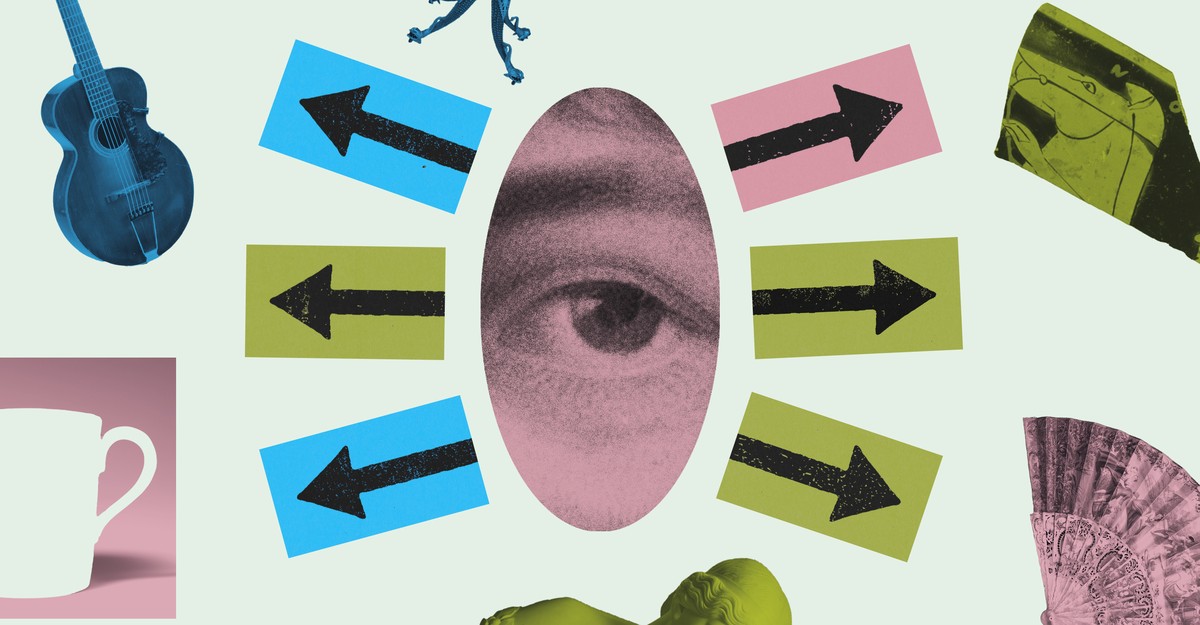

AI is coming for culture
A long piece in the New Yorker from Joshua Rothman.
"a couple of decades into the smartphone era, life’s rhythms and the algorithm’s have merged. We listen to podcasts while getting dressed and watch Netflix before bed. In between, there’s Bluesky on the bus, Spotify at the gym, Instagram at lunch, YouTube before dinner, X for toothbrushing, Pinterest for the insomniac hours. It’s a strange way to live. Algorithms are old—around 300 B.C., Euclid invented one for finding the greatest common divisor of two integers. They are, essentially, mathematical procedures for solving problems. We use them to coördinate physical things (like elevators) and bureaucratic things (like medical residencies). Did it make sense to treat unclaimed time as a problem? We’ve solved it algorithmically, and now have none.
A feeling of overstimulation is one consequence of algorithmic life. Another is a certain jumbledness in our ideas. Why do we care about what we care about? Walking into your basement in the dark, you might stumble into a cobweb; one strain of philosophical thought holds that this is how caring works. We become ensnared by the possibilities that happen to present themselves as we live—we get caught in webs of care. You run into your elderly neighbor in the morning and, that night, wonder how he’s doing. Your middle schooler likes Chappell Roan, and soon you do, too. A single encounter with “The Fountainhead” at thirteen might make you a lifelong libertarian. Algorithmic culture taps into the casual randomness with which we apportion our care; it takes advantage of the fact that what we bump into today might obsess us tomorrow. Its webs, meanwhile, are woven by machines that are owned by corporations."
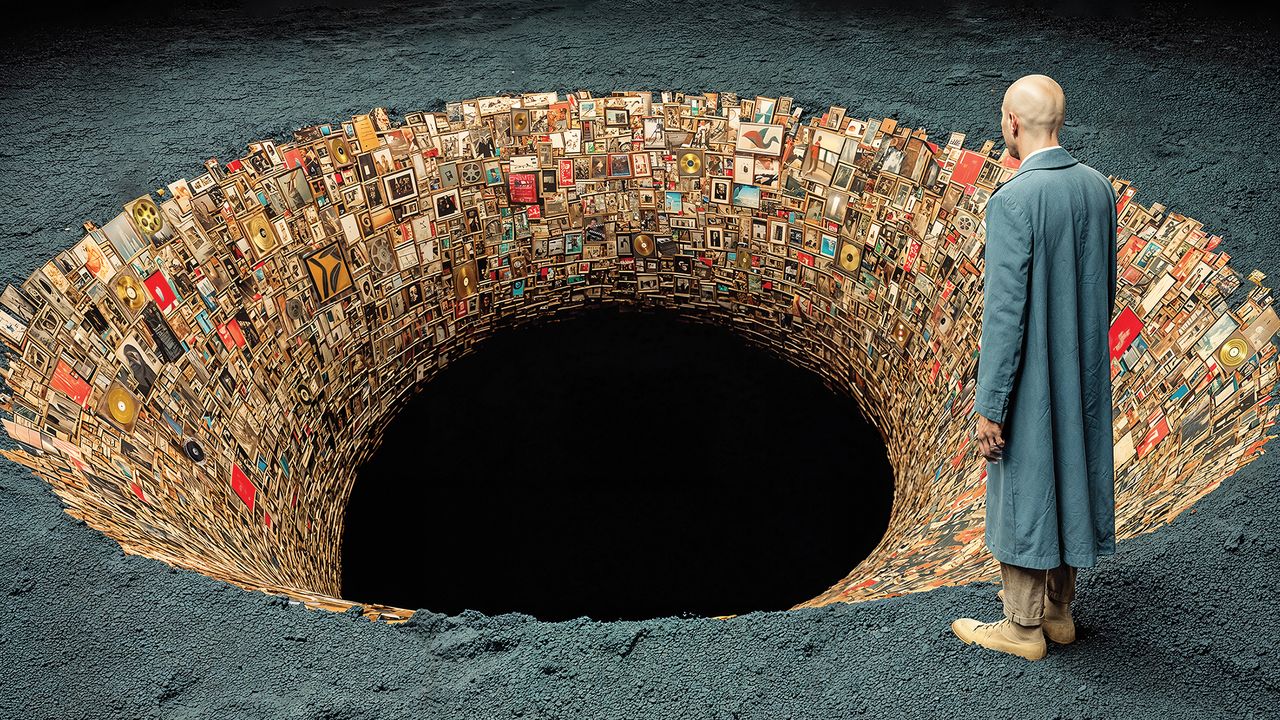
Buy vs build?
Earlier this week I shared a thing I've written on different approaches to digital solutions.
"I think a genuine understanding of digital readiness is the missing piece.
Not just technical ability, but strategic clarity, an understanding of who your users are, decision-making confidence, cross-team collaboration, and appetite for change.
In practice, the “best” route often maps closely to what your organisation is actually ready for, not just what sounds exciting in a pitch."
A bunch of people got in touch to reflect on their experiences of different approaches. Including Ross Eustis at SFJAZZ who said: "very much related to the progression of "bolt, buy, build" over time. It's largely been SFJAZZ's story. From the "scotch tape" testing approach of the early pandemic years, to buying the Vimeo OTT out-of-the-box solution, to now building a more custom solution on SFJAZZ's website" - coincidentially this week SFJAZZ hit 50,000 subscribers on YouTube.

Boring is good
Some good thoughts from Scott Jenson on considering AI.
"The initial, feverish enthusiasm for large language models (LLMs) is beginning to cool, and for good reason. It’s time to trade the out-of-control hype for a more pragmatic, even “boring,” approach. A recent MIT report shows that 95% of companies implementing this technology have yet to see a positive outcome. It’s understandable to feel confused.
When I get confused, I write. This is why I wrote the first part of this series, Hype is a Business Tool as the online debate had become so overheated. In part 2, The Timmy Trap, I covered why we are, surprisingly, a large part of this hype problem. We’ve allowed ourselves to be fooled, confusing an LLM’s language fluency with actual intelligence. LLMs have effectively hacked our social protocols, fooling us into believing they are more intelligent than they are.
So in this final part, I want to answer the question: why should we still care? The tech is problematic, and signs point to the bubble bursting. When we hit the “Trough of Disillusionment,” what rises from the ashes? Two lessons from my career help me navigate uncertainty: 1. technology flows downhill, and 2. we usually start on the wrong path."
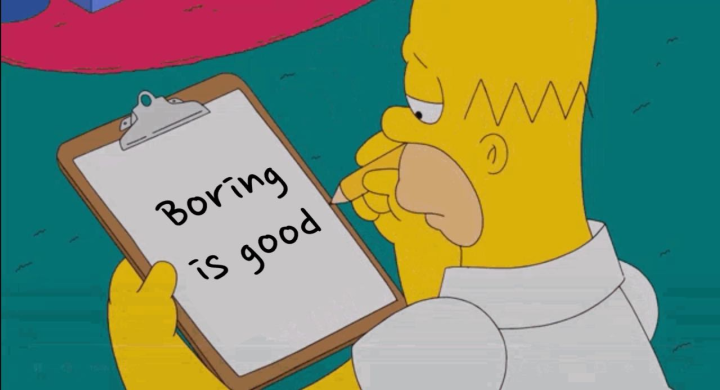
Why You Should Beware The Action Trap
"My friend Jessica Kriegel often warns leaders about the action trap, the mistaken belief that if we just do something we’ll get results. We’re conditioned to have a bias for action, to do something rather than nothing. Yet actions without a sound strategy are doomed to fail. We need to avoid the trap of doing stuff just to make ourselves feel better. Action is no substitute for discipline.
The truth is that good ideas fail all of the time for all kinds of reasons. The status quo always has inertia on its side and never yields its power gracefully. There are also cultural norms and rituals that are rarely obvious. And beneath the surface, there are always unseen obstacles that can derail even the best-intended efforts."
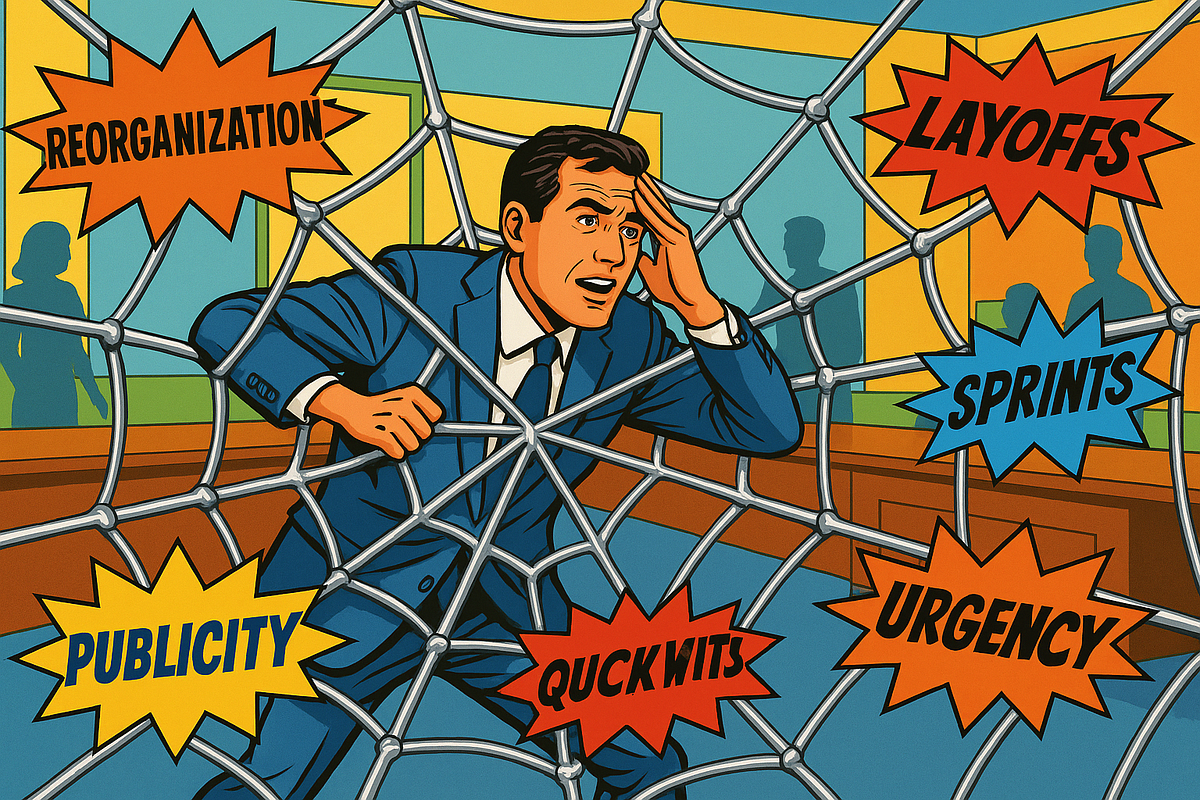
What's a learning organisation
Tash and I discussed this a bit when I spoke to her on the Digital Works Podcast.
"Yes, workshops and training can be part of it, but a learning org is bigger than that soooo much bigger.
It embraces many things, one being boosting institutional memory, capturing knowledge explicitly, sharing it openly, and making sure it isn’t locked in silos or a single person’s head. When knowledge is collective, it doesn’t vanish when someone leaves or moves roles; it becomes part of the organisation’s DNA.
I’m a massive fan of Peter Senge’s The Fifth Discipline, for the deep dive, grab Senges book. But here’s my quick bite size thought… a learning organisation is where the whole organisation leans into learning, not just a few enthusiasts or a training team. Leaders don’t simply endorse learning , they role model it, showing curiosity, humility, and openness every day."
The idea of proactive, robust, and useful 'institutional memory structures' is something I've been speaking to a few people about recently because it is A Problem.
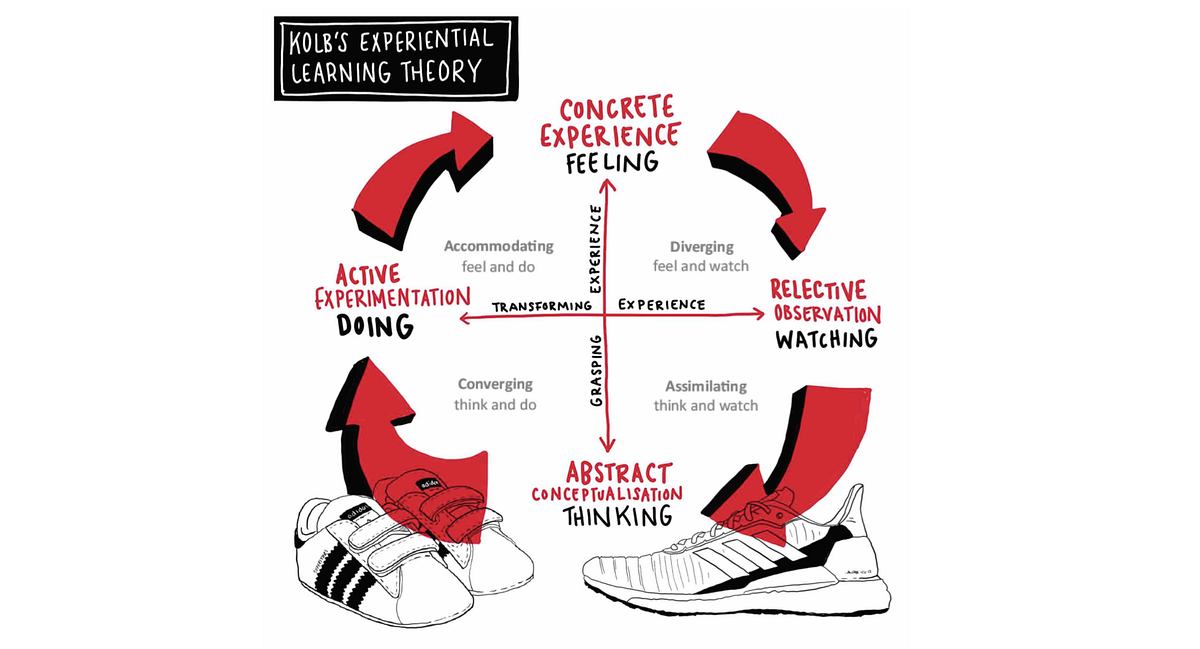
National Trust reports 39% surge in Gen Z members
"From March 2024 to February 2025 over 40,000 new Gen Z members joined the National Trust. The charity said the boost suggests that young people “are prepared to spend their money and time on immersion in nature, history and beautiful surroundings.”
The charity said its young membership cohort has continued to grow, increasing another 16% from the start of March to the end of July 2025.
[...] Recent research has demonstrated that young people’s interest in history and heritage is as strong, if not stronger, than older adults. A research report by the National Trust and Public First, released in May, suggested, younger people (aged 18-44) were more likely to visit heritage sites, landscape, and culture than older generations.
Research carried out by Historic Houses around the same suggests 99% of Gen Z are interested in visiting historic sites, despite 58% citing high entry fees as their reason for not visiting."

Develop conscious awareness of how AI affects your learning
Are you intentional about the role that you ask AI tools to play? This post was about students and learning but it feels like it is applicable more broadly.
"These patterns influence the roles students assign AI: Creator (sparks ideas they develop), Catalyst (exposes thinking gaps), Partner (true collaboration), Builder (strengthens frameworks), Framer (shapes understanding), Doer (handles grunt work), Co-Author (blended thinking), or Outsourcer (does their thinking entirely).
When students automatically assign AI the Outsourcer role for developmental tasks, they miss the intellectual struggle that creates genuine capability. They may feel successful while their reasoning skills stagnate, creating false confidence that academic grades don't reveal."

Interrupting Bias: Calling Out vs. Calling In
Some suggestions for facilitators, people who run meetings, or anyone really, to guide responses to 'interrupt bias'.
It makes the (I think, helpful) differentiation between 'calling out' which is "when we need to let someone know that their words or actions are unacceptable and will not be tolerated" and 'calling in' "when there is an opportunity to explore deeper, make meaning together, and find a mutual sense of understanding across difference".
The Last Days Of Social Media
"Social media was built on the romance of authenticity. Early platforms sold themselves as conduits for genuine connection: stuff you wanted to see, like your friend’s wedding and your cousin’s dog.
Even influencer culture, for all its artifice, promised that behind the ring‑light stood an actual person. But the attention economy, and more recently, the generative AI-fueled late attention economy, have broken whatever social contract underpinned that illusion. The feed no longer feels crowded with people but crowded with content. At this point, it has far less to do with people than with consumers and consumption.
In recent years, Facebook and other platforms that facilitate billions of daily interactions have slowly morphed into the internet’s largest repositories of AI‑generated spam. Research has found what users plainly see: tens of thousands of machine‑written posts now flood public groups — pushing scams, chasing clicks — with clickbait headlines, half‑coherent listicles and hazy lifestyle images stitched together in AI tools like Midjourney."

Say one thing at a time.
A good reminder from Ettie Bailey-King on the importance of keeping things clear and simple.
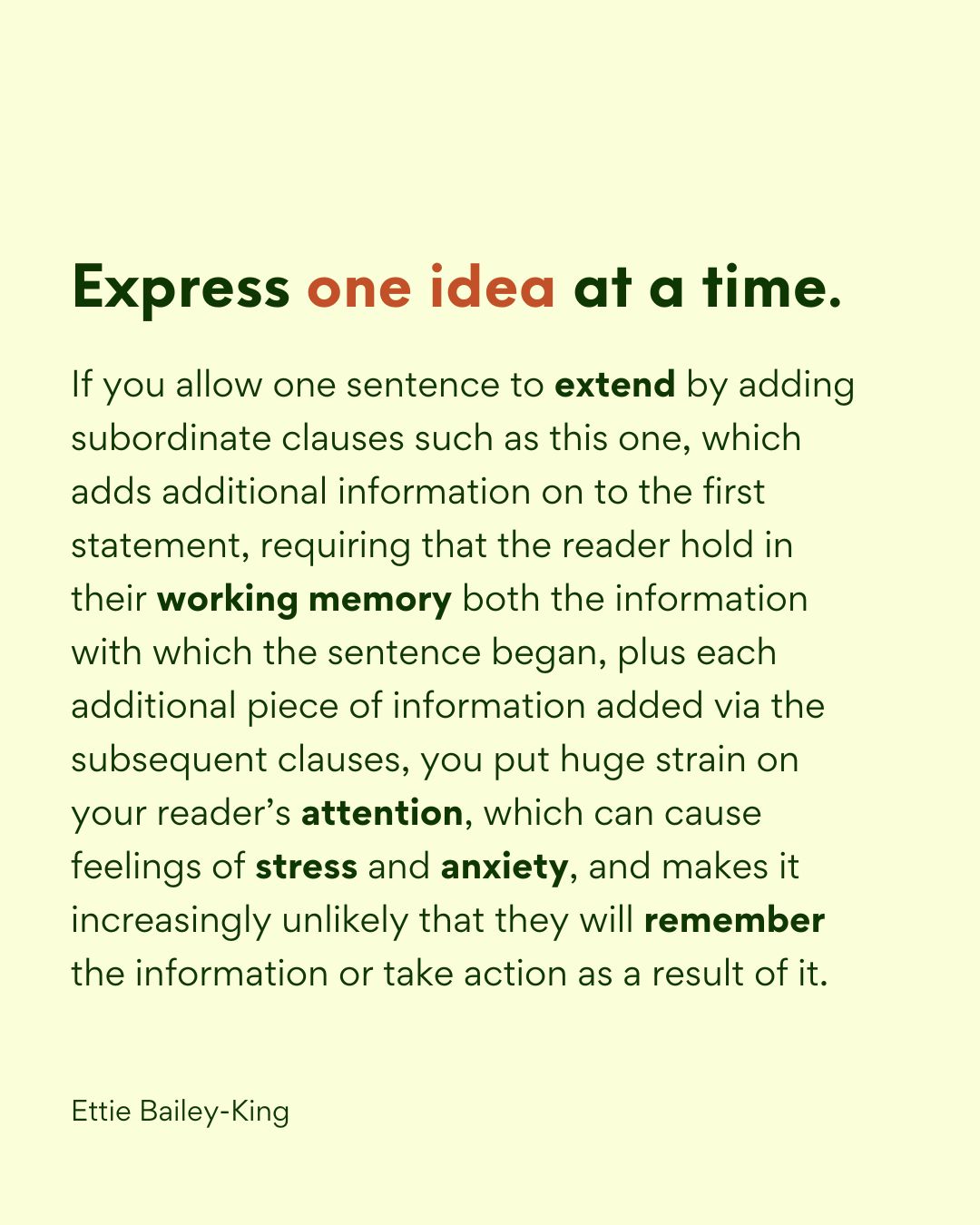
Oakley's dystopian California HQ
Think your office is bad?
Check out Oakley's HQ, built in the 1990s, "the interior mixes industrial and steampunk motifs with rugged steelworks, exposed structural elements and metal-heavy finishes". It looks like a horror movie.
Last week's best things
The 3 most popular links in last week's edition were:
- Organizations Need To Shift From Change Management To Change Fitness
- A six year old YouGov study, objectively ranking how people perceive various words for how good or bad something is, based on survey data.
- Immersive Art Exhibitions Are Everywhere and They’re Awful
This week's consumption
I watched a lot of the World Athletics Championship which I love, and was a good chance to learn loads of new (very niche) Swedish vocab.
I also binged all of Hostage on Netflix which started well and then became a bit silly.
I'm 200 pages into Caledonian Road by Andrew O'Hagan, it's been tough going so far which is disappointing.
See you next week
Thanks for reading all the way to the end, please enjoy this website that you navigate by driving a little car.
To finish, a quick reminder that I'm a consultant who helps cultural organisations do better digital work.
Here are some workshops I offer.
I'm also currently working with organisations on things involving:
- user research to inform digital investment priorities,
- technical strategy,
- leadership development,
- 'critical friend' advice,
- project governance,
- mentoring,
- digital strategy,
- and digital readiness.
If it sounds like I could be useful, then let's chat.











